Chapter 7
Chapter 7 Bankruptcy Discharge: What You Need to Know
- Balances on your credit cards
- Medical/dental bills
- Unpaid utilities
- Payday loans
- Other unsecured personal loans
A Chapter 7 cannot discharge certain other debts, such as child support and alimony payments, certain taxes, court-ordered fines, personal injury settlement debts, or victim restitution. It also generally does not discharge student loan debt except through extremely specific and difficult strategies.

Debt Discharge Through Chapter 7
Once you complete the Chapter 7 process, whatever consumer debt you owe will be discharged through the court. This can include:
- Balances on your credit cards
- Medical/dental bills
- Unpaid utilities
- Payday loans
- Other unsecured personal loans
A Chapter 7 cannot discharge certain other debts, such as child support and alimony payments, certain taxes, court-ordered fines, personal injury settlement debts, or victim restitution. It also generally does not discharge student loan debt except through extremely specific and difficult strategies.
Want to Learn More About How a Chapter 7 Bankruptcy Can Help You?
Reach out today!When faced with insolvency, you need to learn your options. Kyle can help you better understand the Chapter 7 process and how it can help you wipe out consumer debt and put you back in control of your finances.
Call his office today at (478) 401-8886 to set up your free and confidential consultation to get started.

